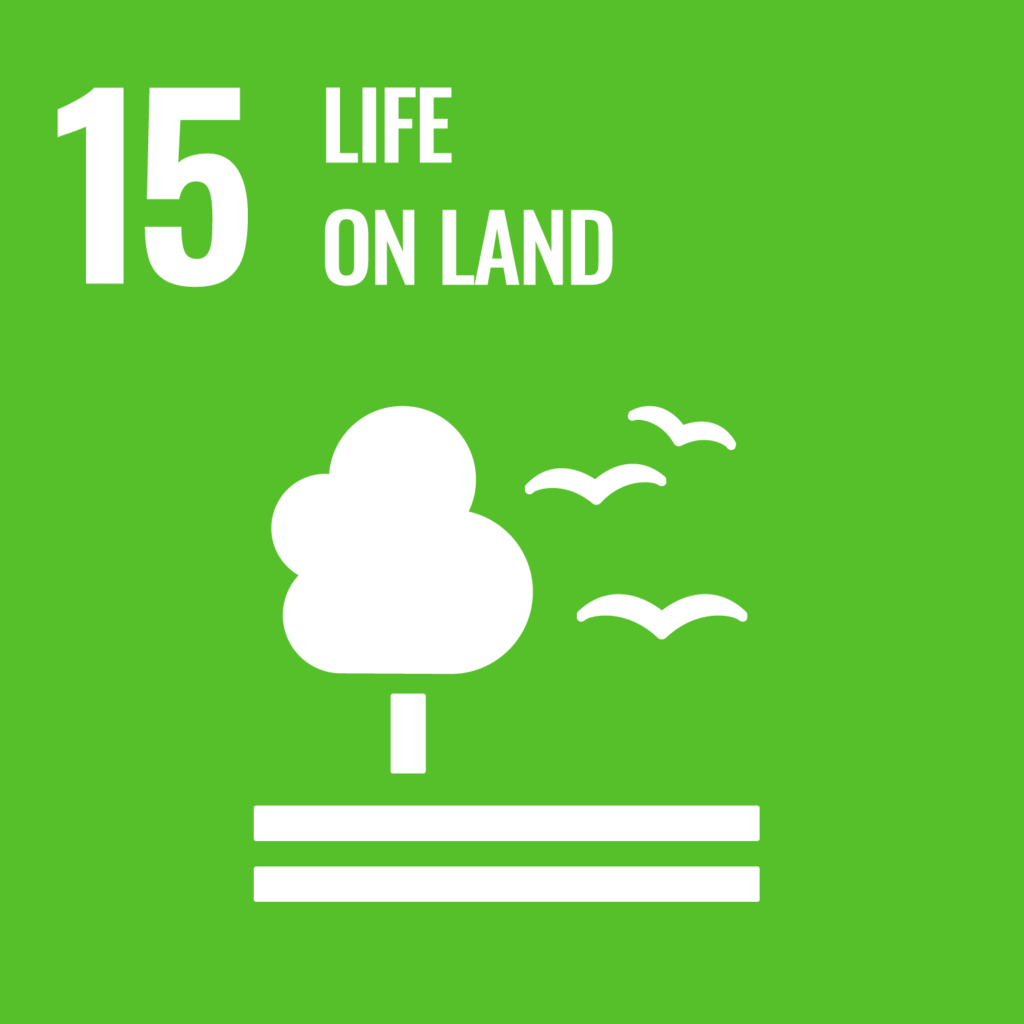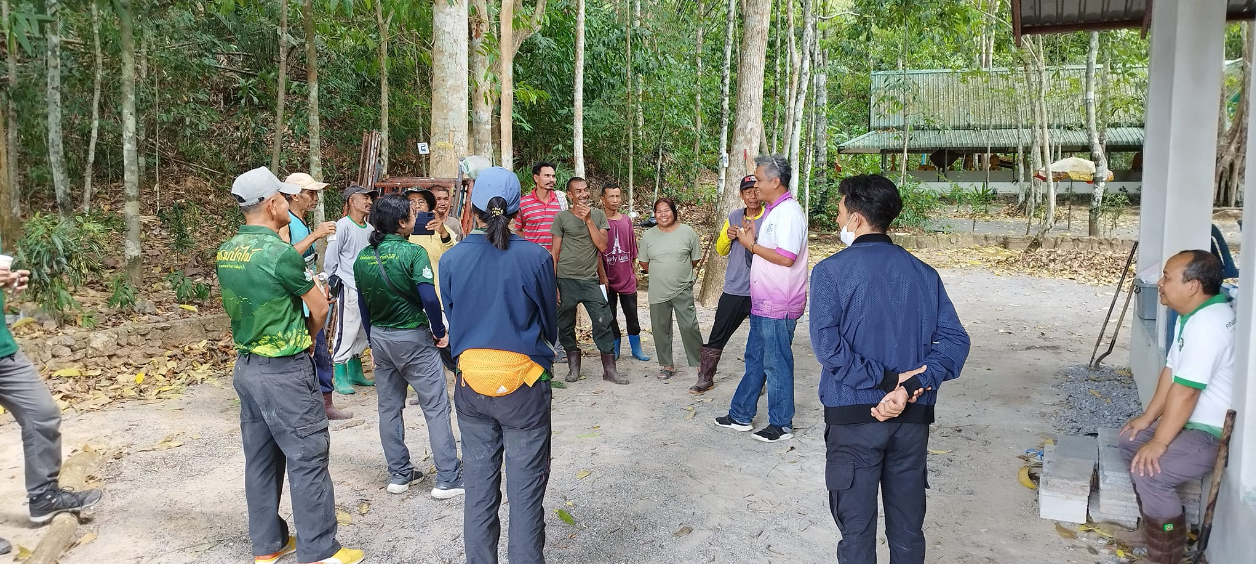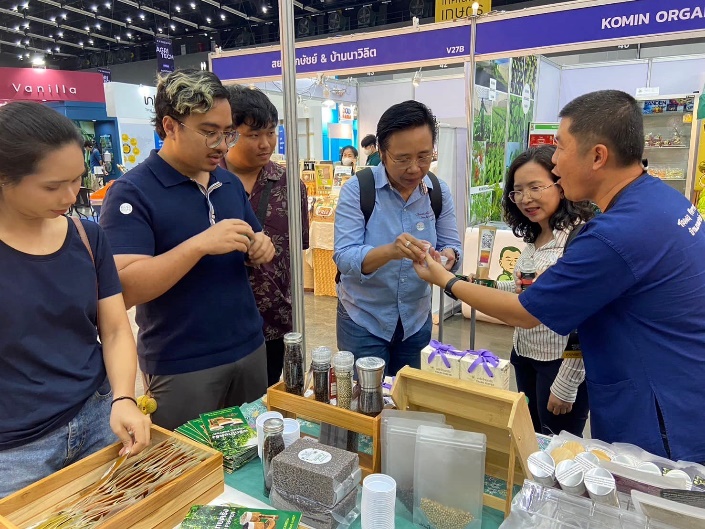Reporters: Asst.Prof.Dr. Prapot Maliwan
Assoc.Prof.Dr. Pornsil Seephueak
Asst.Prof.Dr. Nion Chirapongsathonkul
Asst.Prof.Dr. Worawitoo Meesook
Evidence Date: during 2023 Jan-Dec
Related SDGs:

Related Indicators: 15.3.3
Details: Kiatkajon Chairat, Piya Pechsong, and Puriwat Lertkrai from the Faculty of Management Technology, along with Sathit Buakhao and Chamlueng Hetthong from the Faculty of Agriculture, and Saranpong Nooyimsai from the Faculty of Science and Technology at Rajamangala University of Technology Srivijaya, have launched a research project titled Uplifting the Economy of a Low-Carbon Agricultural Society with Community Participation in the Community Forest Area of Nakhon Si Thammarat Province. Supported by the Fundamental Fund 2023, this project aims to promote economic development in the area by integrating low-carbon practices into agricultural and community forestry. The research evaluates the carbon credit potential within community forests in Nakhon Si Thammarat, a valuable resource that could support local income generation. The team has undertaken the task of educating community members on how to measure carbon sequestration and understand the vital role of large trees in capturing carbon. This initiative not only fosters environmental awareness but also empowers the community with the knowledge and tools to assess and enhance the carbon credit of their forest areas. By implementing carbon measurement practices, the project demonstrates the economic and ecological value of preserving and expanding community forests.
Upon completing the project, the research team plans to collaborate with manufacturing industries, proposing a model in which these companies financially support community forests in recognition of their role in offsetting industrial carbon emissions. The researchers hope that by involving local industries, community members will see a tangible benefit in maintaining their forests, both for ecological sustainability and economic gain. Such financial incentives from industries emitting carbon dioxide could encourage forest preservation and expansion, directly benefiting the community’s economy. Additionally, the project highlights the importance of building a low-carbon agricultural society through sustainable practices. By linking community-led conservation efforts with economic incentives, the research provides a practical framework for balancing environmental stewardship and financial sustainability. Ultimately, this initiative aims to serve as a model for similar projects throughout Thailand, emphasizing community empowerment, ecological education, and the economic benefits of sustainable forest management.

Related Links: https://riss.rmutsv.ac.th/project/?id=4953



